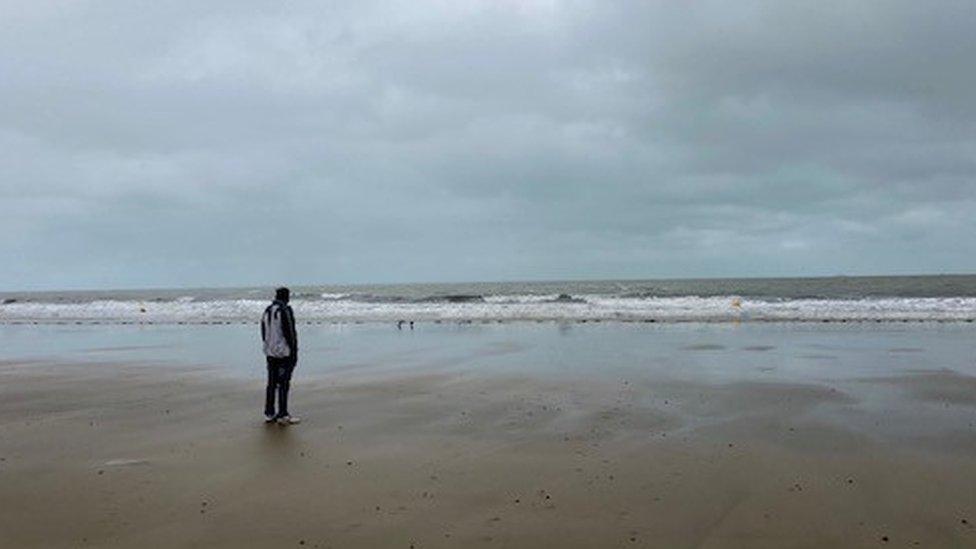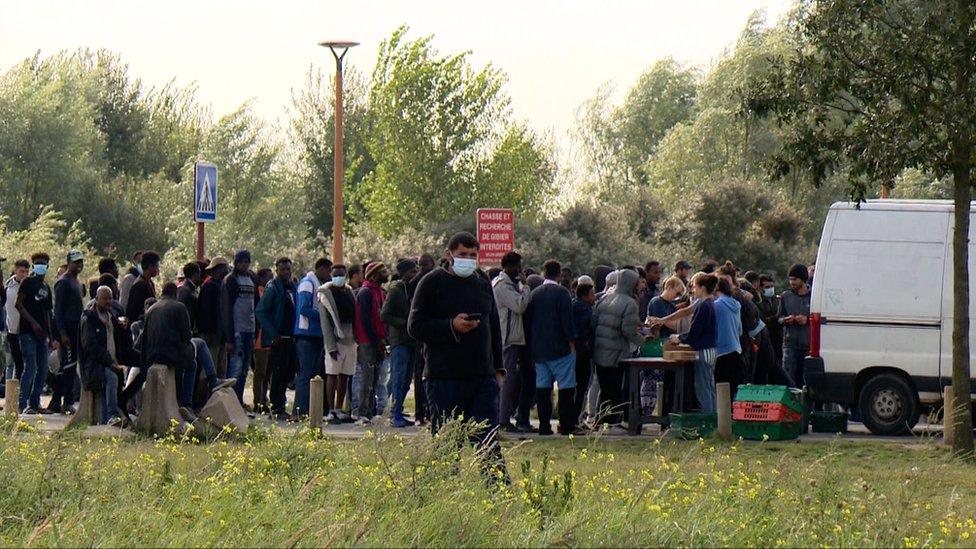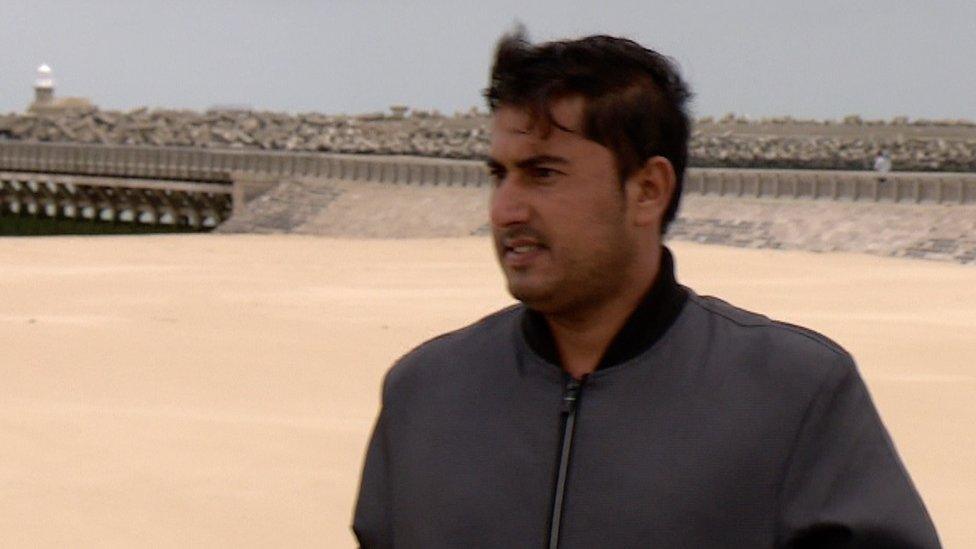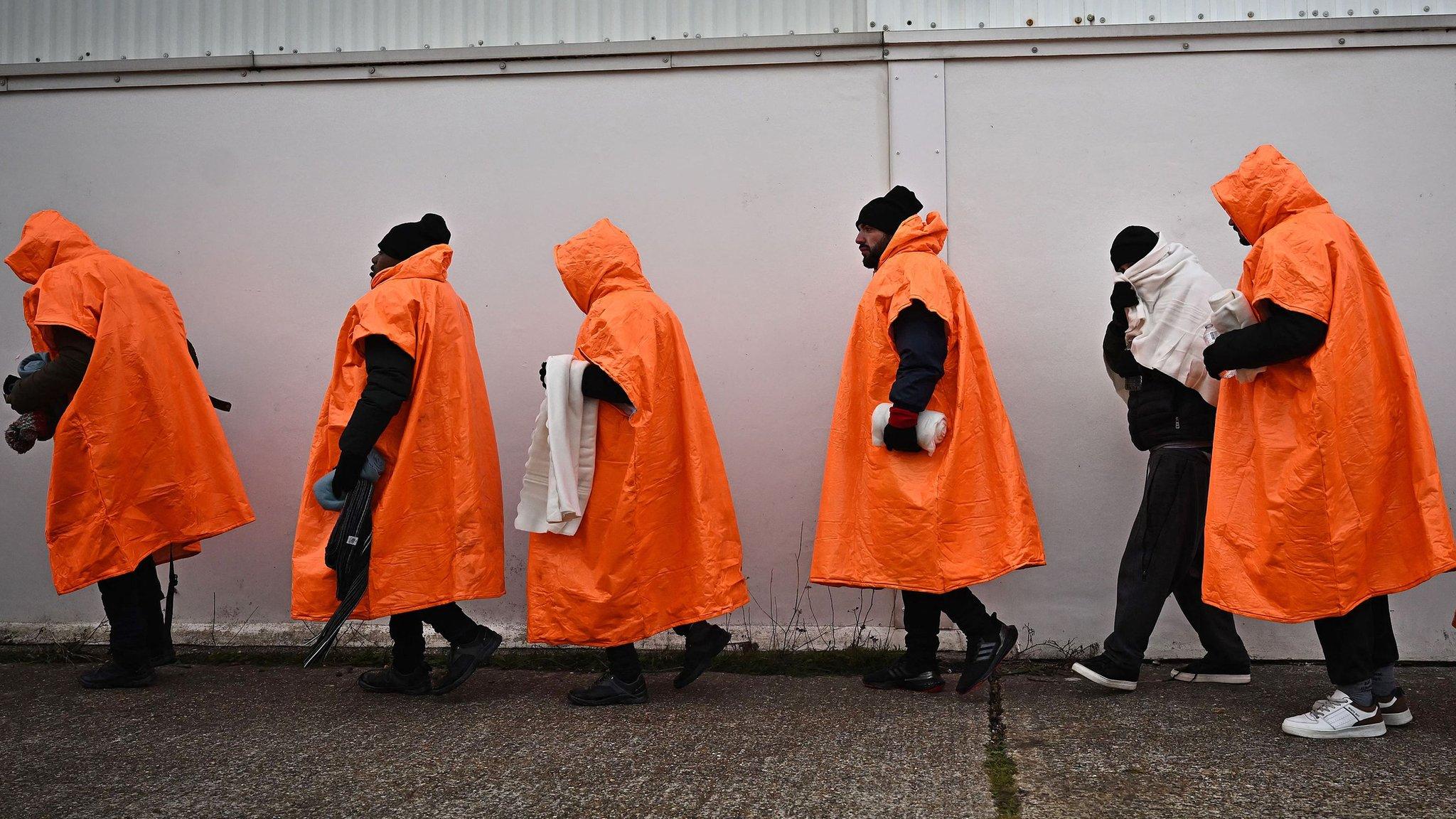Afghans in Calais prepare to risk lives again to reach UK
- Published

Mohammad Wali said he persuaded the French military to fly him out of Kabul last week
Even among the Afghan migrants already living at the camp in Calais, Mohammad Wali stands out. Tall and broad, with a huge gap-toothed smile and a blue scarf wound around his head, he seems full of energy, full of hope.
He arrived here a week ago, he told me, after being evacuated from Kabul airport on a French military flight.
"Somebody said 'the airport is sealed - there are too many people there,'" he said. "So I start the car, and I go there. I see [so] many people in airport, children crying, women crying, 'Afghanistan is finished, please give me way to go to any country - not [just] England or France; any country.'"
Mohammad said he worked as a bodyguard for a political party, whose members were targeted by the Taliban, and that his boss advised him to leave.
I tried the US army, but he said 'no, I just take children or families.' So, the next day I tried the French airplane, and he accepted me

He said he then called his mother from the airport. She initially urged him to stay behind with his wife and three children, but eventually gave him her blessing to leave.
"I came to France and after two days my heart is broken," Mohammad Wali said. "I have one small daughter, she's just 11 months old. I miss my children, I miss my mother."
President Emmanuel Macron has said that more than 2,000 Afghans deemed at risk are among the people France has evacuated on military flights. Many more have been evacuated by other countries or are trying to leave Afghanistan by land.
Aid agencies say they expect an influx of Afghans here in the coming weeks.
But Calais has long been home to those fleeing the Taliban. They just don't usually arrive in France on a military plane.
Mohammad's friend, Hakim, told me he fled the Taliban earlier this summer and travelled overland to Calais.
Next to him, Kankey says he arrived here in France six years ago, after local leaders suspected him of passing information to the army. When they couldn't find him, they killed his father instead.

Afghans in Calais say more than 60 people have reached the UK in a week, hidden in refrigerated lorries
Now settled here in France, he speaks every day to the family he left behind.
"I have a mother, a wife and two brothers still in Afghanistan," he told me. "They are really scared. They can't go out, they stay in the house. They ask me what will happen to us?"
Kankey, 26, has promised his family that somehow he will bring them all out of Afghanistan. But they ask him, with the Taliban in complete control, even if he does send visas how will they get to the airport.
As news of Thursday's bomb attacks outside the airport spread, Mohammad's friend Hakim told us that his neighbour was among the dead.
"I saw his picture," Hakim told me. "He was injured and died in hospital."

Hakim recognised one of the victims of the attack outside Kabul airport
I offered Hakim my condolences. "Well, this happens all the time in Afghanistan," he said.
At the beach, Mohammad Wali watches the ferries cross the Channel. Like many here, he wants to get to the UK. Some have given up trying and are claiming asylum in France.
He spent two years there before, he says, and shows me his UK Border Agency ID card like a talisman. He's convinced it was this card that helped persuade French soldiers to let him on the military flight.
Despite crossing the Channel undetected in 2014, Mohammad Wali says he's never actually seen the Channel, or been to a beach.
He writes a message in the sand: "England," it says.
Afghans here in Calais believe that more than 60 people have crossed to the UK in the past week, hidden inside refrigerated lorries. Mohammad plans to do the same.
After escaping the chaos of Afghanistan, he's preparing to risk his life again to cross 20 miles of sea.
The BBC visits the US Ramstein airbase playing host to thousands of Afghan refugees
Related topics
- Published13 December 2023
